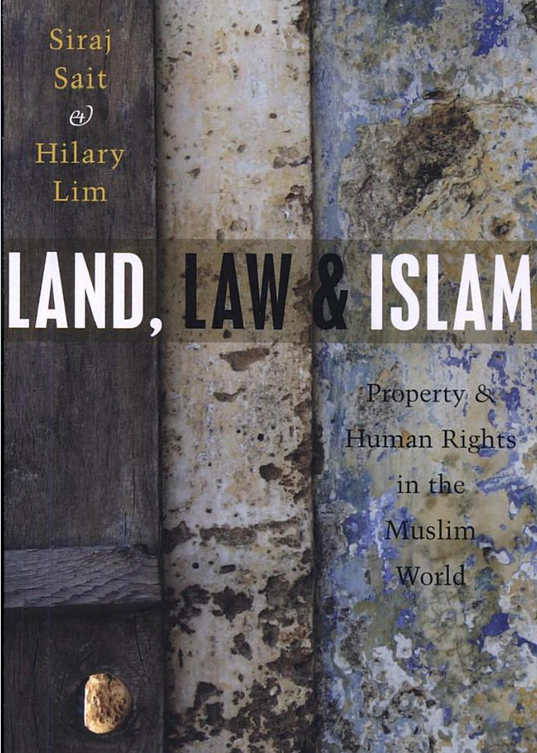In this book Siraj Sait and Hilary Lim address Islamic property and land rights, drawing on a range of socio-historical, classical and contemporary resources. They address the significance of Islamic theories of property and Islamic land tenure governments on the ‘webs of tenure’ prevalent in the Muslim societies. They consider the possibility of using Islamic legal and human rights systems for the development of inclusive, pro-poor approaches to land rights. They also focus on Muslim women’s rights to property and inheritance systems. Engaging with institutions such as the Islamic endowment (waqf) and principles of Islamic micro-finance, they test the work-ability of ‘authentic’ Islamic proposals. Located in human rights as well as Islamic debates, this study offers a well researched and constructive appraisal of property and land rights in the Muslim world.
This book is a cross cultural endeavor to promote global strategies for enhancing security of tenure in the Muslim World. This collaborative venture between UN-HABITAT, academics and civil society makes a vital and timely contribution to the Global Land Tool Network (GLTN) and other global campaigns.
This book addresses the gap in both the human rights and Islamic literature on land and property issues and therefore will be of interest to practitioners as well as academics.
The book challenges the stereotyped versions of Islam and its practice in Muslim communities. The findings of this research have been broadly endorsed by the most respected Islamic seat of scholarship. It will contribute to the scholarship among land specialists, officials and professions as well as Muslim scholars, gender experts and development analysts.
Table of Contents:
1. Researching Islam, land and property
2. Islamic law, land and methodologies
3. Islamic land tenures and reform
4. Islam, human rights and land
5. Inheritance laws and systems
6. Muslim women and property
7. The Waqf (endowment) and Islamic philanthropy
8. Islamic credit and micro-credit
For more information click here.
 Ijtihad Network Being Wise and Faithful Muslim in the Contemporary World
Ijtihad Network Being Wise and Faithful Muslim in the Contemporary World

